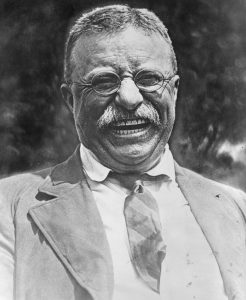- Donald Trump is the Anti-Christ. If he is elected, America is over.
- Hillary Clinton is the only other option. If you do not vote for Hillary, America is over.
I do not agree with either of these points, but, for a few hundred words, let’s live in a world where they are gospel truth, divinely revealed, handed down from the mount, and, of course, thoroughly fact-checked and proved bullshit-free.
While it astounds me that American citizens would complacently accept such a reality (addressed in my post here), it is the narrative for about half of us, it seems.
So I have to ask, if Hillary Clinton really is the competent candidate I’m told she is; if the Democratic Party really is the friend to The People that it claims to be; if Trump’s nomination really is proof that the GOP has lost cohesion and isn’t going to be with us in any form we recognize…
Then why isn’t our one candidate trying to adapt and make herself more palatable to the entire electorate? Why run an adaptation of Bernie Sanders’s socialist-inspired platform, munged with W. Bush’s imperialist agenda, at such a time? Why make extremism our only option?
Answer: because both the candidate and her party are opportunists, lacking in principle and drooling for power. In a nation where half the citizenry does not support them, the Democratic Party sees a chance to shove its political philosophy down the throats of anyone who disagrees.
This is not the first time that this nation has faced such a crisis. In the early days of the 20th Century, we were also facing:
- concern over the wealth gap between rich and poor
- a perceived need to use our military and economic resources to solve the problems of war-torn nations halfway around the world
- large, powerful corporations, propped up by government, holding a stranglehold (enabled by graft) on many elected officials, threatening harm to the economic interests of the nation.
- protests, which turned into riots, led by a segment of society which felt marginalized.
Then, as now, one party took an extreme side, and a candidate, Alton B. Parker, was nominated for the presidency. If elected, Parker would have been president of only a plurality of the United States. Then, as now, some of the loudest voices in our media were offering socialism as the answer to the nation’s ills. Parker did not run on a socialist platform, but he was firmly on the side of labor, unwilling to hear at all the concerns of capital. His party excused the violence of mobs which dynamited train stations and killed non-union miners, even as they condemned the (admittedly terrible) police brutality used to combat them.
Then, as now, there was one candidate who was credible, and that candidate was very concerned about the future of his party. Theodore Roosevelt, upon receiving the nomination of a divided Republican Party, realized that he could not just go toe to toe with Judge Alton B. Parker and counter his every proposal. He couldn’t make the American voters choose a side between capital and labor. He didn’t. He promised that corporations and trusts would be checked when they overstepped themselves by abusing their employees or setting unfair prices. He promised just as sincerely that union violence would not be tolerated. “There is no worse enemy of the wage-earner,” he said, “than the man who condones mob violence in any shape, or who preaches class hatred.” The White House door would open for labor “just as easily [as] for the big capitalists, but no easier.”
After his election, opposing the old guard of his party, Roosevelt stayed this course. In the words of William Howard Taft, later to become President and a bitter Roosevelt opponent, but then a trusted member of Roosevelt’s cabinet, the new President recognized that, “It is no unheard of thing to have a majority as large and sweeping as this one followed by a defeat equally emphatic at the next Presidential election.”
The situation in 2016 is does not significantly differ from the situation in 1904. Why, then, are we willing to accept a leader who is so much less than the leader our predecessors selected at that time?
Candidates like Donald Trump and Hillary Clinton are each born of the frustration voters desire to “see something done.” They want big, decisive action that will fix whatever their perceived problems are. The trouble is, each of us sees different problems, and large factions of us see in the solutions of others more problems for ourselves. If we just keep electing partisan shills to carry out extreme agendas, we’re going to pendulum back and forth along the political spectrum and accomplish nothing. Along the way, because major party candidates have, for decades now, demonstrated a reckless disregard for the Constitution and the Bill of Rights, we’re going to keep suffering violations of those rights.
If the Democratic Party truly wants to be the knight in shining armor that rescues us from Dragon Trump, it needs to reign in its Queen and make her into a leader instead of a competent agent of partisan whim.


